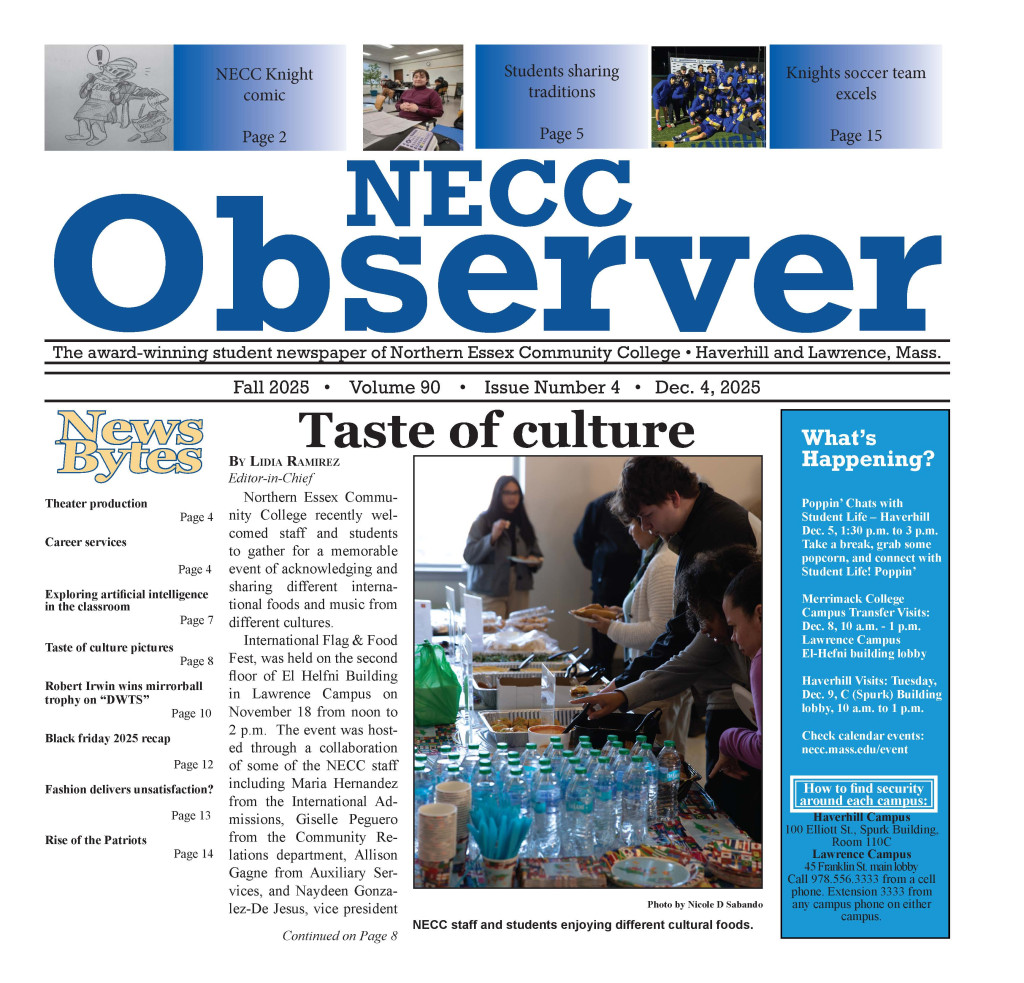The LGBT community reaches some pivotal milestones over the summer.
On June 26, the United States Supreme Court ruled same-sex marriage a constitutional right with a 5-to-4 vote.
In his decision, Justice Anthony M. Kennedy stated, “No union is more profound than marriage, for it embodies the highest ideals of love, fidelity, devotion, sacrifice and family. In forming a marital union, two people become something greater than once they were.”
Prof. Kristi Arford said she was sitting at her computer first thing in the morning when she read the headlines about the ruling. “That was a really important moment!” she said. Colby Patrie was getting ready for an anime convention when he heard the news. He said, “I ran into the living room to watch the news and watched President Obama’s speech.”
The trans community made some strides of their own, continuing to get more and more time in the spotlight. On a local scale, the Massachusetts Trans Political Coalition started a bill to give trans people protections not already promised to them. The bill includes protections against harassment in public places, discrimination in the workplace and protection in general of their well being. Mike Givens, public relations for the MTPC said that the bill met some difficulties town by town leading the Coalition to take it to the State House. On Sept. 17 the MTPC and supporters will hold their “Lobby Day” on the Grand Staircase of the Massachusetts State House.
“I Am Jazz,” a TLC show, debuted July 15. The reality show depicts the life of Jazz Jennings, a 14-year-old trans girl who came out to her parents at the age of 2 and to the rest of her community at her 5th birthday party when she made the bold decision to wear a one-piece rainbow bathing suit.
Jennings came out to the public back in 2007 and has since co-written a children’s book to help younger kids–and anyone else who cared to read it–understand what it means to be transgender. She has become a major spokesperson for the trans community doing panels, speaking at ceremonies and keeping up her own YouTube page.
Caitlyn Jenner created a media frenzy when she came out as trans during an April 25 interview on 20/20.
Arford admits to deleting some hometown acquitances and high school peers over their outrage towards Jenner’s decision to come out. “I don’t normally come in to contact with people in the real world who hold, and openly express, hostile attitudes toward LGBT people,” she said.
Patrie was “fortunate” not to delete anyone he said but did do his fair share of arguing.
“My response is always, get over it, this is big news and a part of history,” he said.
The fire was further fueled when she revealed herself post-operation on the cover of Vanity Fair’s July issue.
Jenner fielded a lot of hate during this time. When she was awarded the Arthur Ashe Courage Award at the ESPYS on July 15, many took to social media to voice their displeasure. Facebook and Twitter were abuzz with criticism that called for a reevaluation of the meaning of courage.
Different memes on the internet juxtaposed Chris Kyle with Jenner with the caption, “Hero. Not a hero.” Some memes went as far as to slander people for judging Michael Jackson for his plastic surgery and praising Jenner for hers.
In contrast, some Internet users fought against hateful language with loving messages, creating memes positioning pictures of Jenner back in her Olympian days and her Vanity Fair cover with the caption, “American hero.”
Patrie a second-year art student, reached a milestone of his own this summer.
“I spent my whole life wondering why I had to wear these stupid dresses … It wasn’t until years later when I learned what transgender was and everything fell right into place,” said Patrie who came out publicly as trans on July 29. He names Jenner as his biggest influence. “She was once known as the manliest man you could ever be, tough, strong, an olympian. For her to come out was the bravest thing she could have ever done. and you see the difference in photos. (Bruce was) always frowning, covering their face, you could see there was pain.”
NECC’s own LGBT presence is known as the Gay-Straight Alliance and is overseen by Arford. Arford has been teaching at the school for seven years in the areas of anthropology, world religions, sociology and sex and gender. Three or four years ago she took on the role of GSA faculty adviser.
Growing up, Arford said she didn’t know any trans kids but, as previously mentioned, she teaches a course on sex and gender and uses her knowledge to try and explain the taboo still surrounding transgender people, “Our culture’s ideas of sex and gender are based on an ‘essentialist’ binary, with roots in religion. If you believe that God created males and females, and only males and females, with very distinct characteristics and ‘natural’ roles to play, then you most likely believe a person cannot choose to change that, and that one’s assigned sex cannot be wrong. One problem with this thinking is that it doesn’t recognize the difference between sex and gender, and does not acknowledge gender roles as social constructs that vary widely across time and place.”
Patrie adds, “People are afraid of what they don’t know, and start thinking the worst.”
As the world continues to turn and change, Arford said, “People are becoming more aware, and more people are challenging the gender binary. I guess that’ll probably be the next big cultural shift we’ll see, a move away from the binary understanding of gender, toward more fluidity and variance in gender expression.”
Those readers looking for a safe place on campus for LGBT folks and allies alike can contact Kristi Arford at karford@necc.mass.edu for information on upcoming GSA meetings.

